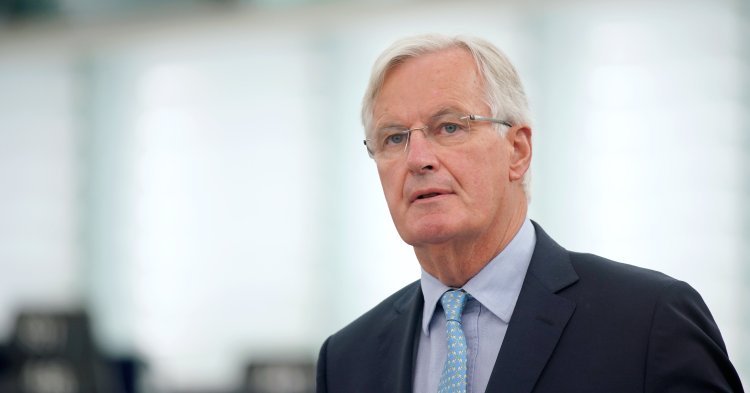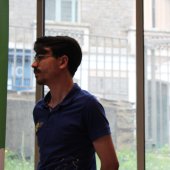Negotiations on the future relations between the United Kingdom and the European Union began in early March, and are now greatly hampered by the coronavirus pandemic affecting our continent and are now proving to test Europe. Does it reshuffle the Brexit-calendar cards? As a European diplomat recently acknowledged, the negotiations “are a bit in lockdown”.
Where did the negotiations stop?
First of all, it’s interesting to know where we stand: from the 2nd to the 5th of March, both negotiation teams met in Brussels for the “first round”. These exchanges, which are due to continue alternately in Brussels and London until the United Kingdom exits the European Union at the end of the year, have highlighted the main points of disagreement around which these discussions will centre: the level playing fields, fisheries, the governance of this future agreement and finally, judicial cooperation – including the jurisdiction of the Court of Justice of the European Union (CJEU) and of the European Court of Human Rights (ECHR).
After a week of negotiations, Michel Barnier, the European Commission’s Head of the UK Task Force, wanted to be realistic: these negotiations will be tough. For the European team, it is as much about building an economic partnership as it is about ensuring the proper implementation of the withdrawal agreement (citizen rights and the Irish protocol). The EU also need to anticipate changes when the United Kingdom actually leaves.
Added to this is the technical difficulty imposed by the coronavirus pandemic. The fact that Michel Barnier (who tested positive to Covid-19) or David Frost (the UK’s Chief Negotiator of the Europe Task Force, who has shown mild symptoms and has self-isolated) are unable to take part discussions doesn’t pose a problem in itself, as the teams are more than just teams. However, talking to dozens of diplomats via videoconference about such a thorny subject is very complicated.
Level playing fields at stake
This is certainly the point that will create the most frinction between the two negotiations teams; yet, it is the cornerstone of an extensive agreement. The level playing fields’ objective is to “prevent distortions of trade and unfair competitive advantages [based on high standards]”, as stated in the Political Declaration made on 17 October 2019, as Michel Barnier recalled. The problem is that the UK doesn’t want any formal commitment and therefore rejects any process for settling potential disputes over compliance with these standards.
Why are level playing fields a central issue to the Union?
The stakes are high because of the United Kingdom’s geographical proximity: having a country on its doorstep that applies different standards to those applied within the Union would be a threat. This is reflected in the negotiation mandate approved by the member states on 25 February last: An entire section is devoted exclusively to LPF to cover all areas: competition, state aid, social protection, etc. These arguments remain unanswered on the British side: no mention of it is made in the negotiating mandate, and David Frost even formally rejected it ahead of this first round.
The rejection of the CJEU and the ECHR
One of the points for negotiation will be the future of judicial cooperation between the Union and the United Kingdom. The difficulty in this area is the use of personal data, including the guarantee of protection of fundamental rights. In any case, it is the European position which makes all cooperation subject to respect for fundamental rights, which in turn, gives rise to the jurisdiction of the European Court of Human Rights and the Court of Justice of the European Union.
Yet, the other side of the Channel fundamentally rejects this, as in the British mandate the rejection of any jurisdiction of a foreign court is expressed from the very first pages of the British mandate:
“Whatever happens, the Government will not negotiate any arrangement in which the UK does not have control of its own laws and political life. That means that we will not agree to any obligations for our laws to be aligned with the EU’s, or for the EU’s institutions, including the Court of Justice, to have any jurisdiction in the UK.”
David Frost even goes further, being somewhat provocative, as he considers that the UK will not need to remain a State Party to the European Convention of Human Rights to maintain the same standards.
This possibility of a “second Brexit” on fundamental rights is foreseen in Brussels. The European Commission wants to be able to put an end to possible judicial and police cooperation in the event that the United Kingdom were to be released from its treaty obligations.A position that seems to be very firmly anchored on the European side since the President of the Commission, Ursula von der Leyen, reminded us precisely of this point in a communication addressed to MEPs on 10 March.
The fisheries agreement: the indispensable prerequisite
This point could quickly become explosive and shorten the negotiations: the fisheries agreement must be settled before the 1st of July and is considered by the European negotiators to be the indispensable prerequisite to any trade agreement. The whole issue is to agree both on the conditions and areas of access but also on the quantities of fishing allowed.
These issues are essential, especially on the French side where fishermen already experience some restrictions around the Channel Islands. Could this scenario be extended to all British waters? There is currently a stand-off on how to solve this issue, as David Frost envisages a renegotiated and renewed agreement every year, which is ruled out by Michel Barnier for reasons of uncertainty weighing upon European fishermen.
So, what’s next?
At first glance, the negotiations appear to have gotten off to a bad start, even if we can’t draw conclusions at this opening stage. For now, we are in an observation phase where everyone is trying to demonstrate the validity of their positions before starting to really negotiate in the upcoming weeks.
The real uncertainty is that of time: a time all the more precious as it is eroded away every day by the coronavirus pandemic which has put the negotiations “on lockdown”. Boris Johnson doesn’t look willing to give into the possibly to extending the transition period, and this despite the exceptional circumstances currently affecting our continent. If so, this ambitious agreement appears less and less likely and the consequences would be brutal.
The European Union’s economy, faced with a deep financial shock, has adopted exceptional measures: the triggering the general escape clause in the Stability and Growth Pact, the buyback of Eurozone bonds to the tune of 750 billion euros by the European Central Bank, and the suspension of state aid rules... Seeing as the UK is still legally bound to the European Union, it can still benefit from these measures.
This question of time is all the more essential as we near the first major stage in the Brexit negotiations: July 1st, the deadline for a fisheries agreement and for the request of an extension of the transition period. It seems very unlikely, however, that European countries will have come out of this health crisis and its consequences by July.



Follow the comments: |
|
